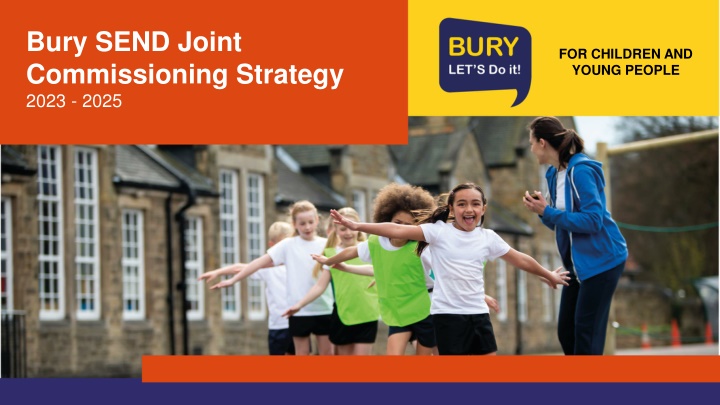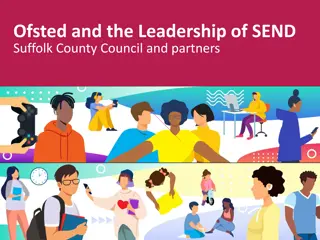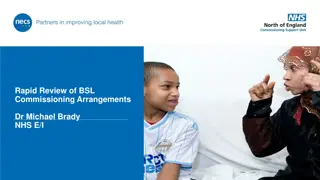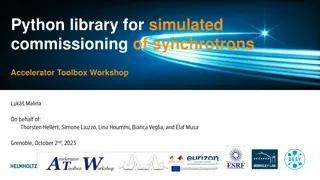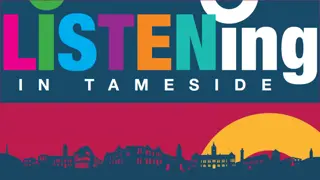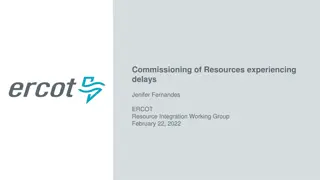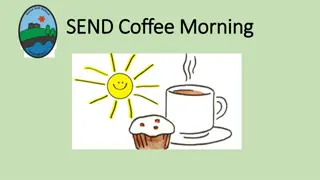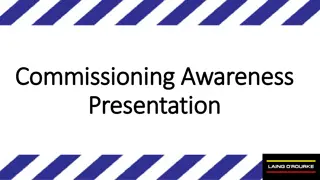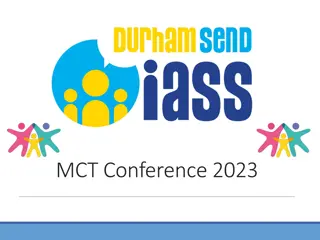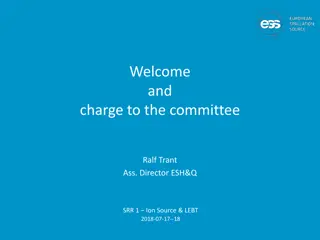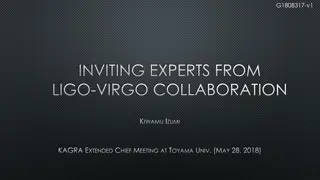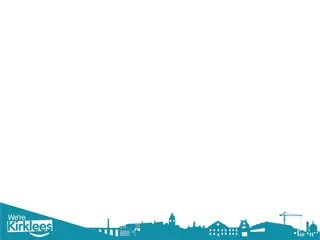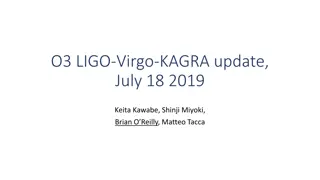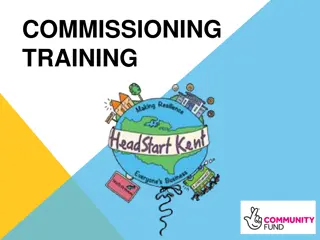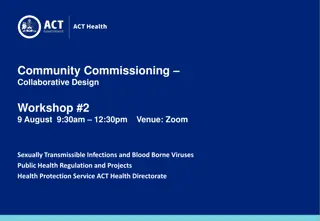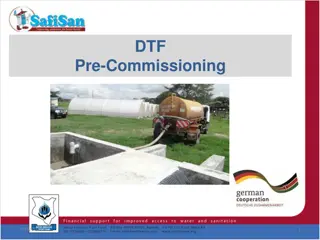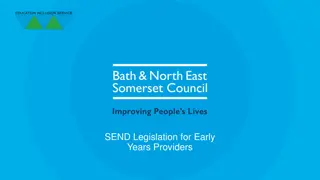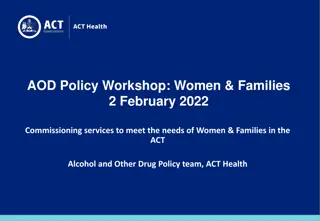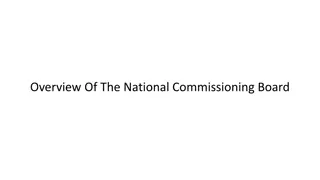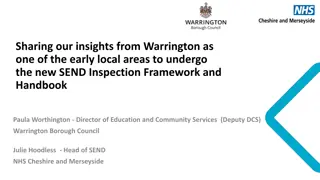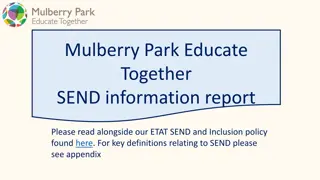Bury SEND Joint Commissioning Strategy 2023-2025
This draft outlines Bury's approach to joint commissioning for children and young people, emphasizing collaboration and effective service delivery through collective planning and resource utilization. The strategy focuses on engaging with service users, aligning needs assessment, and improving outcomes for individuals. By enhancing forecasting and response capabilities, Bury aims to optimize local SEND services and prioritize positive outcomes for the community. The Children and Young People's Plan further details the city's commitment to behavioral change and improving resilience and independence through collaborative service commissioning efforts.
Download Presentation

Please find below an Image/Link to download the presentation.
The content on the website is provided AS IS for your information and personal use only. It may not be sold, licensed, or shared on other websites without obtaining consent from the author.If you encounter any issues during the download, it is possible that the publisher has removed the file from their server.
You are allowed to download the files provided on this website for personal or commercial use, subject to the condition that they are used lawfully. All files are the property of their respective owners.
The content on the website is provided AS IS for your information and personal use only. It may not be sold, licensed, or shared on other websites without obtaining consent from the author.
E N D
Presentation Transcript
Bury SEND Joint Commissioning Strategy 2023 - 2025 FOR CHILDREN AND YOUNG PEOPLE Draft
Bury SEND Joint Commissioning Strategy 2023- 2025 This Joint Commissioning Strategy sets out our approach and the commitment of all key partners to joint commissioning. In simple terms this means that we will work together to plan and deliver services in a joined-up way. Draft This strategy outlines how partners across education, health and care work together with children, young people and their families to plan, design and deliver support, utilising innovative approaches and ensuring effective use of our collective knowledge and resource. This includes collective review of current service delivery arrangements and pathways, including engagement with service users to identify further developments that are required. The voices of children, young people and their families and carers are at the heart of our work, and their experiences and feedback influence this Joint Commissioning Strategy. The strategy sits alongside and is informed by the SEND Strategy and Joint Area Needs Assessment. Happy, Healthy and Safe with increasing independence
What is Joint Commissioning? Commissioning is the assessment of need and planning and prioritising services for a local population, and purchasing and/or monitoring services to ensure the best outcomes. In Bury, SEND commissioning is undertaken jointly, by two or more agencies working together, often in health and local government, and sometimes from a pooled or aligned budget. Joint commissioning for SEND ensures the best possible response to a child s or young person s needs, aligning and integrating the strategic needs assessment, planning and delivery of services to achieve more. This includes jointly identifying current and future needs, any gaps in provision and how resources can be maximised, sharing intelligence across all services to both improve outcomes for children and to help inform commissioning and planning decisions across all aspects of SEND support. Draft By improving our ability to forecast and respond to the needs of the local area, we can improve planning and commissioning of our local SEND services
Our Joint Commissioning The Children and Young People s Plan sets out further how the Bury intends to take forward the overall ambition and approach described in the Bury Locality Plan in relation to children and young people. This is a plan for children, not for children s services. All areas of the city have a role in supporting our children and young people, not least families, focusing on outcomes that are driven by the needs of people and local communities working to make a real difference to families. Draft In this context, our commissioning approach is to bring about behavioural change - achieving positive outcomes that build resilience, increase independence and reduce reliance on services. We work collaboratively across Bury in commissioning services, using available funding for priority statutory services and to stimulate new activity that complements services to improve choice, quality and value for money. We are committed to progressing our Joint Commissioning arrangements. More work development via AQuA Advancing Quality Alliance (aqua)
The Joint Commissioning Cycle We base our commissioning approach on the Commissioning Cycle, and using these principles, our approach is to: Use data intelligently to inform commissioning decisions Draft Apply a needs-led commissioning model using the JSNA Review prioritised service specifications, and re-tender dependent on needs of service users and required outcomes Develop new services where gaps are identified in the local offer Redesign service pathways to create services that are more effective, fit for purpose and needs-led Use formal processes of service-user feedback to evaluate effectiveness of service delivery Co-produce and design services with parents/carers and children/young people
JSNA With a determination to continually improve the data that informs joint commissioning decision- making, we are working with the Council for Disabled Children to review our JSNA. This work will be completed by INSERT DATE. The outcomes of this work will inform future joint commissioning decisions and will result in: An increased number of strategically relevant commissioned services which are aligned and integrated with the flexibility to meet future demand. A clear coordinated offer for Bury children with increased use of community provision and assets. A demonstrable willingness to think outside existing organisation structures which include services with shared ownership. Pooling of strategic resources around services to ensure value for money and a reduction in duplication of resources Draft .
Co-production At the heart of our approach is our continued ambition for effective co-production. The SEND workstream of Co- Production and Engagement with parents, carers and professionals has developed a working definition of Co- Production values and behaviours, with input from children and young people. These are in our Co-Production Strategy and Charter and involve having equal and mutual respect for each other s views, with open and honest relationships, that are transparent and continually evolving to achieve meaningful and positive outcomes. Draft From 2019 we have worked with Genuine Partnerships (Rotherham Parent Forum) to adopt the nationally recognised Voices model of Coproduction, and we continue to strengthen effective co-production. The Voices model uses four cornerstones: Welcome and Care; Value and Include; Communicate; Work in Partnership. Using this model, we have held: Focus groups with LA education, schools and settings, parents/carers, young people, health, social care Co-production Conference in Feb 2021 Individual coaching sessions with managers Workshops with teams on identified themes .
Parent Carer Engagement: You Said We Did Co-production and strategic work with parents and carers has strengthened in recent years, and the learning from this period informs our ongoing partnership. One key learning is that virtual strategic meetings enables more parents to engage and participate, ensuring a more representative voice. B2G attend virtual SEND Boards and Groups. Draft A bi-annual survey of parents and carers of children and young people (aged 0-25) with SEND on how effectively education, health and care services are meeting the needs of children, young people and their families which are reported to the local area SEND Board and feed into the Board s action plan. The 2022 Parental Survey Executive Report was produced in August 22 with a you said, we did feedback to parents/carers on the findings and improvements made in response to their views of services. Going forwards, we look to implement you said, we are doing, we did , to demonstrate ongoing activity. . Our task as set out in Let s Do It , is to create the conditions for all children and young people to have the best possible start, to have the opportunities to grow within their community and to the author of their own life .
Our SEND Strategic Aims Good practice joint commissioning for SEND should lead to a number of positive outcomes for children and young people with SEND and their families, as well as improved outcomes for commissioners and providers. The local area SEND Board is responsible for evaluating the implementation of the Commissioning Priorities and identifying key areas for development. These actions are captured within the SEND Strategic Action Plan. The Board has agreed the following SEND Strategic Priorities and oversees the Strategic Action Plan 2021-2024 which partners are working together to deliver: Draft Parents /carers and children s/youngpeople s views impact on strategic decisions. Development of an excellent local offer, understood and accessible to all leading to improved life outcomes. Integrated, transparent pathway allows parents/carers and young people to access services across education, health and care. Young people with SEND have needs met through excellent education, health and care services, jointly commissioned where appropriate. Preparing for Adulthood (PfA) is embedded in Bury from the earliest years. Improved outcomes and standards across education and training. A highly skilled workforce across all stakeholders improves outcome for children and young people.
Our Strategic Joint Commissioning Objectives The SEND Joint Commissioning Strategy is underpinned by the Lets Do It Strategy, describing our behaviours and our practice standards which are at the heart of how we develop services. The Principles are about developing our business as usual approach based on good practice. This approach works towards transforming the existing services and market to ensure we are efficient and effective, and that our children are safe. Our Strategy is about doing the right thing, but by working to these principles we collaborate to ensure that we achieve budget efficiencies. Draft The overarching objective for joint commissioning is to improve joint commissioning arrangements for SEND ensuring they are based on the needs of children young people and families. Actions are detailed in Joint Commissioning Group Workplan 2023/2024: For us joint commissioning isn t just about paying for services, it s planning, piloting, reviewing & evaluating together
Our Joint Commissioning Delivery Priorities The Joint Commissioning priorities covered in the workplan for 2023-2025 are based on the elements within the new SEND inspection framework. These are: Draft Leaders have an accurate, shared understanding of need Leaders commission services and provision based on needs and aspirations Leaders evaluate services and make improvements Leaders actively engage and work with children, young people & their families Leaders create an environment in which effective practice and multi-agency working can flourish Leaders know and understand the impact of the local area partnership s SEND arrangements on the experiences and outcomes of children and young people with SEND These are described in greater detail in the Joint Commissioning Workplan. Happy, Healthy and Safe with increasing independence
Shared Decision Making NEEDS A LINE ABOUT HOW SHARED DECISION MAKING IS CARRIED OUT FOR JOINT COMMISSIONING - THE REST ARE EXAMPLES OF THIS Multi agency panels have improved the decision making and joint funding of services for children with regard to: Short Breaks Draft EHCP s Highest levels of need These are reviewed and the learning and information gathered to inform commissioning intentions. Social care, health and education partners have developed a Dynamic Support Register ( DSR) to help forecast what provision will be needed in the future. This register will support our joint commissioning within Bury and the sub-region for children and young people with the highest level of need.
What Our Families Have Told Us What families say: Draft Communication and information is key Transition between children s and adults services is a vital to get right Services are often not joined up and don t work together People view my child in parts I don t want to have to tell my story lots of times to lots of people
Our Joint Commissioning in Practice: A Review of 2022/23 There are a number of services, processes and workforce development, jointly commissioned to meet identified needs. My Happy Mind (mHm) Resilience pilot. We have jointly commissioned mHm to support children to be able to learn how to self regulate and to recognise their character strengths therefore supporting resilience building . This programme also has a parents app so that parents and carers can learn about what the child has been learning in school and they can practice with their child. Draft Pupils with SEMH have a higher prevalence in Bury There has been a significant increase in the number of Bury children being referred for social communication assessment and the numbers receiving an Autism diagnosis. It is thought that greater numbers of children being referred (including those with severe learning difficulties) and earlier diagnosis have contributed to this increase. We will be reviewing this and will develop a joint commissioning approach to securing better provision. The number of diagnosed children with autism as their primary need increased significantly
Our Joint Commissioning in Practice: A Review of 2022/23 continued Driven by the wish from many children, young people and their parents and carers to tell their story once , we are working jointly as commissioners, providers and parents and carers to develop personal profiles. To support this a task and finish group to adopt the one page profile to the story far as a stand alone to improve families experiences has been established . The aim is for every child or young person in Bury (and ultimately adults) to have the opportunity to create an All About Me profile . All About Me, which is a one-page easy read document, will then be accessible to any care, support, education and social setting giving individuals and services an understanding of the child or young person s likes, interests and how they like to be supported. We anticipate this to result in improved experience and outcomes for children and young people and their parents and carers. Draft Good news stories and case studies from re-tendered Short Breaks provision evidence positive outcomes for children and young people
Our Joint Commissioning in Practice: A Review of 2022/23 continued Mental health provision across Greater Manchester has developed over the last few years CAMHS and key stakeholders have designed a THRIVE model of care that is being implemented across all Manchester localities, in line with the LCO configuration, to ensure the all Mental Health and Emotional and Wellbeing services are available to Children and Young People in a wrap-around provision model. Draft This will ensure a single point of access and minimise blockages in accessing the right service at the right time for all Children and Young People across Bury. Mental Health Support Teams ( MHSTs) This has seen a multidisciplinary team across Health, Education, and CVS organisations come together to develop and mobilise 2 new mental health teams working across over 30 education establishments . Mental Health Support Teams (MHST) our mobilising in our special schools and resource provision. The legacy of Covid has impacted on emotional well-being and increased anxiety for some children and young people
Governance structure as of January 2023 Children and Young Peoples Strategic Partnership board GM SEND board Draft Early Years / Starting Well board Joint Commissioning Group Parents Carer Young person voice SEND strategic Partnership board JSNA Task and Finish Group & Boards: Neurodevelopment pathway AiS School project DSR Short break review Outcome framework 14- 25 SEND Operational group Local Offer Transport Quality Assurance
